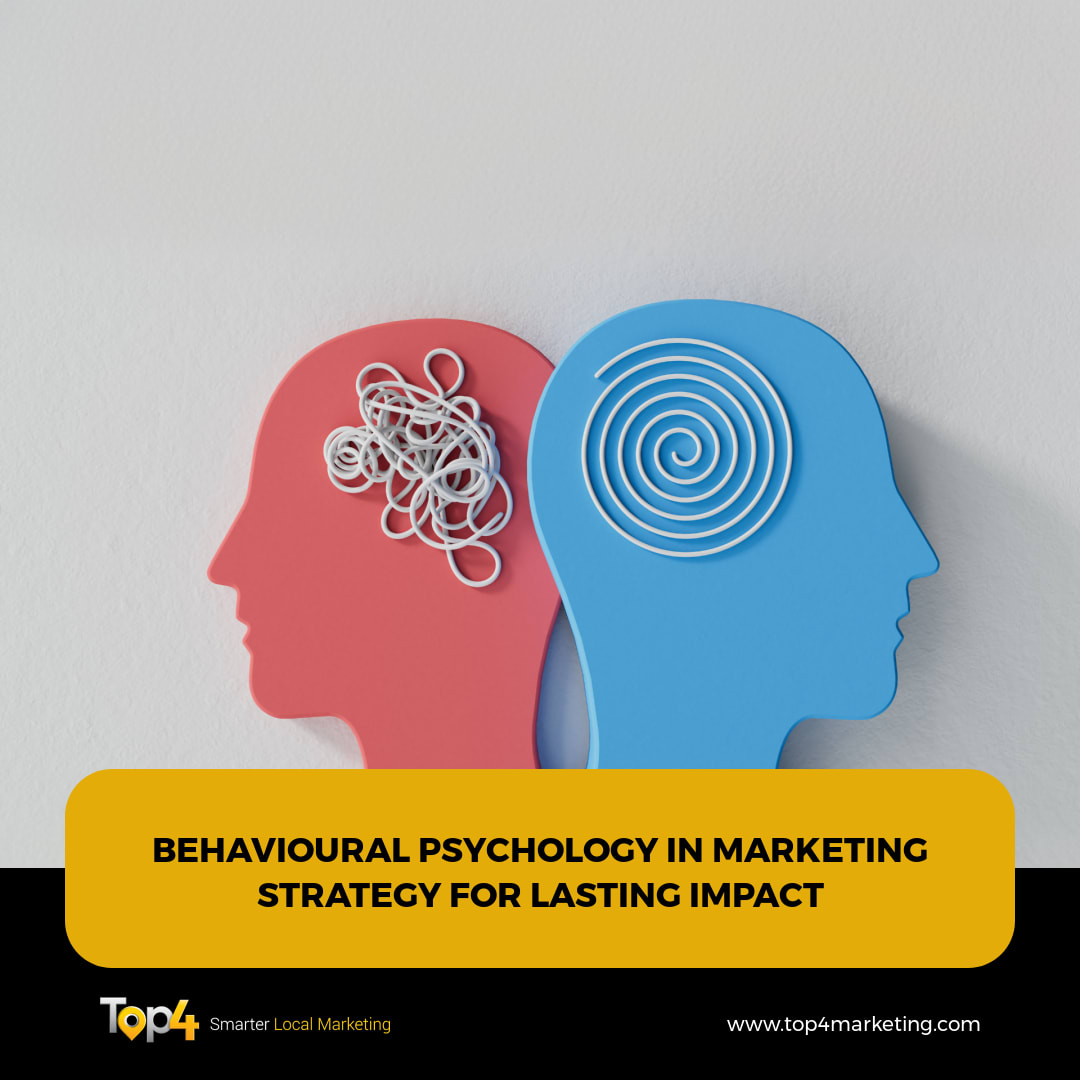Not only is knowing 'what' they do important, but so is knowing 'why' consumers do what they do. Human behavior studies, or behavioral psychology, give profound insights into how to shape marketing strategies and influence decision-making processes. Why do customers click on a particular ad? What motivates them to add items in their cart, and why do they abandon the purchase at the very last moment? It is here that behavioral psychology comes into play and helps explain the underlying cognitive patterns that govern purchasing behavior. This article explores how integrating behavioral psychology into your marketing strategy will lead to stronger customer engagement and stronger business performance.
What Is Behavioral Psychology in Marketing?
Behavioral psychology in marketing uses psychological principles to understand and predict consumer behavioral consequences. Marketers draw upon psychological insights to create more effective campaigns that are in tune with the customers' cognitive processes. Methods of persuasions, perceptions, and emotional triggers are embedded in marketing strategies to influence buying decisions.
For example, "reciprocity"-a psychological principle wherein people feel obliged to return favors-is always put into practice in marketing:. Free trials, samples, or discounts are indicative gestures that will entail customers in the further development of a brand. Correspondingly, the "scarcity effect," where customers perceive a product as more valuable if it's in limited supply, often drives quicker purchasing decisions. These are just a few of the ways behavioral psychology is interwoven into marketing efforts to subtly influence consumer behavior.
The Behavioral Approach in Marketing: Principles That Drive Success
To properly understand what the behavioral approach in marketing is, one needs to understand some basic psychological principles on which this takes place. These are the bases on which marketers can build their campaigns to better connect with target audiences:
- Social Proof
Social proof is the general idea that people are going to continue doing things that the mass already does. If they are doing it, then it must be the right thing to do. In marketing, social proof comes in many forms: customer testimonials, user-generated content, or influencer endorsements. A common example of this is the usage of product reviews. Once potential customers can see others have found success with a product, they, too, will be more likely to buy that for themselves.
- Loss Aversion
People tend to avoid losses rather than acquiring gains of the same measure. It means for marketing, this psychological tendency can turn into a very powerful weapon. The offers that would create a sense of urgency through a time-limited option, the notification of low stock, or special deals for members only make FOMO. By framing offers in a way which makes customers feel that by not acting they might lose something, marketers can foster urgency that leads to conversions.
- Anchoring
Anchoring Anchoring refers to the human tendency of relying too much on the first piece seen when one makes a decision. Marketers make use of this with pricing. Suppose a product is shown to customers at one price and then the mark-down price is presented. The original price is the "anchor," and the markdown price will seem like a much better value. This can be seen during sale events.
- Emotional Triggers
Emotion is a strong driver in decision-making. Brands that evoke any kind of emotion from consumers are usually those who have high levels of engagement. Whether it's nostalgia, joy, or empathy, emotional marketing triggers action owing to deeper connections with audiences. Video ads, particularly, shine in this area by weaving storytelling that resonates on an emotional level.
How Do We Use Behavioral Psychology in Marketing? Practical Applications
It is not good enough to just understand the theory of how we employ behavioral psychology in marketing. A lot of creativity and strategic thinking must go into implementing these theories. Here's how some of the above behavioral psychology tactics may be applied to marketing campaigns:
- Personalisation Based on Behavioral Data
Behavioral psychology can help brands in the actual execution of focused marketing experiences based on whatever data may be available on user behavior, such as search history or click patterns, past purchases, etc. Personalisation breeds relevance, and where a customer sees that content is tailored for them, they are most likely to engage.
Examples include the email campaigns of targeted recommendations based on prior browsing or purchase history. All these personal touches create a feeling in the customer that their peculiar needs are cared for, making them loyal and repeating the sales.
- Framing and Messaging
The framing of a message greatly affects how that message is received. Marketers will use both positive framing ("Buy now and save 20%") and negative framing ("Only two left! Don't miss out!") to appeal to different psychological motivators. Framing affects perception, and may be manipulated depending on the action desired.
- Behavioral Triggers in E-commerce
E-commerce sites provide gentle nudges, in which items left in a cart, with reminders or notifications for limited stock, would provoke an impulse to buy immediately. Triggers are designed to act on mental mechanisms: scarcity and urgency-which would push consumers to a decision.
- A/B Testing and Behavioral Feedback
A/B testing is such a strong tool that allows marketers to try different ways and come out with what works best. Be it the layout of a website, the color of a CTA button, or the wording of an email, testing how customers react to variations helps in refining strategies. The feedback one gets from these tests allows them to delve further into understanding consumer behavior and allows the business to optimise their approach accordingly.
Examples of the Use of Behavioral Psychology in Successful Campaigns
To show how effective behavioral psychology has become in marketing, here are a few examples of brands that have successfully integrated these principles into their campaigns:
- Scarcity and Social Proof Application by Amazon
Scarcity principle: Amazon takes complete leverage of the scarcity principle in order to influence their audience. Showing phrases like "Only 3 left in stock" or "Order within 2 hours for next-day delivery" triggers customers to perform the purchase without wasting any time. This, along with user reviews and ratings-something which is known as social proof-drives conversions since customers feel they are making a smart, timely decision.
- Coca-Cola's Personalisation of the 'Share a Coke' Campaign
One of the great examples of personalisation is the campaign 'Share a Coke' by Coca-Cola. Printing people's names on bottles, Coca-Cola exploited that very personal connection every person has when he or she sees their name on certain products. The emotional trigger that told customers they were special increased sales and social media engagement when people shared photos with their personalised bottles.
- Behavioral Data-based Netflix Recommendations
Netflix utilises behavioral psychology via the use of recommendations according to viewing history. Since it uses customer data, Netflix can make more personalised recommendations which will keep users hooked onto their site for a longer period. This is, in fact, a personal experience wherein users find out that Netflix "knows" them; hence, the satisfaction and retention rates will be high.
- Booking.com FOMO
Booking.com knows how to use the FOMO principle in design: messages like "Last room available!" or "Booked 4 times in the last 24 hours" creates a fear of missing out and accelerating booking accommodation. That's an example of urgency, which is based on the principle of loss aversion, when a person doesn't want to lose an opportunity that is a good deal.
Each of them is a case study in how appealing to human understanding creates a different-and better-marketing strategy. Using the principles of psychology, each brand came up with an experience that their audience immediately identified with, and that drove not only engagement but also sales.
Challenges and Considerations in Applying Behavioral Psychology to Marketing
While behavioral psychology can yield powerful insights into the design of marketing strategies, there are some practical and ethical considerations that must be addressed.
- Ethical Use of Psychological Triggers
In applying behavioral psychology to marketing, the fine line between influence and manipulation should be observed. It is necessary for businesses to adapt these techniques responsibly; businesses must make sure they will not take advantage of their customers' emotions and vulnerabilities. Any marketing campaign should consider transparency and honesty as a quintessential base in order to create long-term trust with their customers.
- Overspending on Short-Term Profits
Scarcity or urgency may push the customer to buy faster, but one risks customer fatigue with overuse of these tactics. If each offer is "limited time only" or "exclusive," people start becoming blind to the messages. Psychological techniques must be balanced against true value propositions for enduring customer loyalty.
- Data Privacy and Personalisation
Behavioral personalisation makes marketing more effective, but at the same time, it raises several data protection problems. A company should be transparent with its customers regarding data gathering and processing, as stated by such documents as GDPR. Finding that delicate balance between respecting customer privacy and delivering personalised experiences will help build trust.
- Cultural Differences
Behavioral factors might not work uniformly across different cultures. Even social norms, attitude, and behavior may vary so much from region to region that techniques effective in one market may just fall flat in another. Marketing activities have to be tailored to such cultural differences to avoid miscommunication or alienation of target customers.
By being aware of these obstacles and considerations, companies will, therefore, be able to apply behavioral psychology to developing ethical yet effective marketing strategies that build customer relationships in the long run.
Conclusion: How Behavioral Psychology Can Power Marketing Success
The secret ingredient that may bring about deeper customer engagements, coupled with increased conversion rates, is mixing behavioral psychology into the marketing strategy. Applying social proof, loss aversion, and emotional triggers among other psychological principles, businesses create messages that ring with their audiences on a cognitive level.
Understanding the psychology of decision-making is crucial in these times, when consumer behavior becomes increasingly driven by data. In addition, this helps develop marketing strategies that must grab attention but result in meaningful engagement. Techniques developed from behavioral psychology enable a business to align their marketing efforts with the way customers think and act, thus enhancing overall performance. In such a highly competitive landscape, behavioral psychology arms marketers with the ability to create lasting connections that drive long-term success.
What businesses do by integrating these insights is move out of traditional ways of marketing into a more holistic approach: understanding customer behavior and responding to it in a manner that makes every interaction purposeful and impactful.
At Top4 Marketing, our expertise can help you craft a local marketing plan that aligns with your business goals and local community needs. Let us assist you in maximising your online strategy. Visit Top4 Marketing blog for more insights to elevate your business to new heights. Contact us today and start your journey towards local marketing success.




























